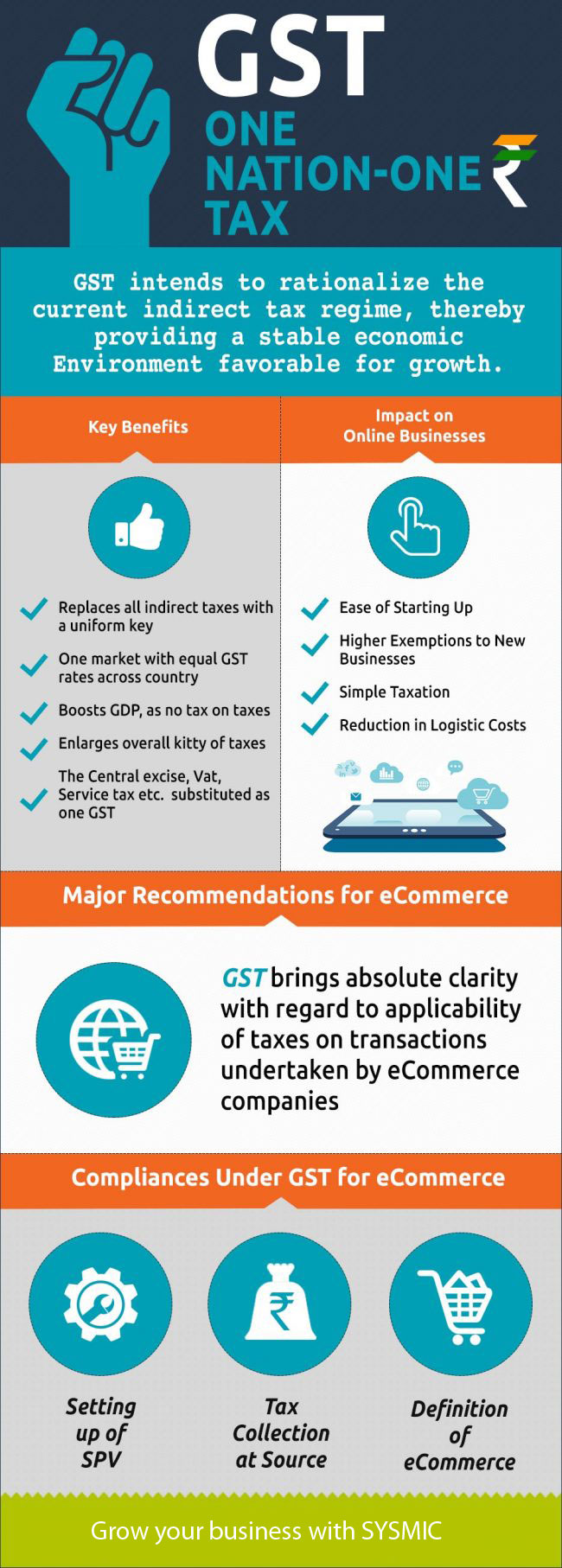The introduction of GST is the boldest and single largest tax reform since the opening up of economy. It aims at providing a cohesive tax approach across India. For online businesses especially for eCommerce, it is a welcome step as passing of GST tends to rationalize seamless integration of goods and services across the country.
GST ensures absolute clarity with regards to applicability of direct taxes on transactions undertaken by online businesses. It is the first step which devices clear laws for eCommerce, thereby providing a stable environment favorable for growth and development.
Following are the key impacts and recommendations for an online business on account of GST:
Impact on Online Businesses
GST not only revamps the current paradigm of indirect taxes but also improves tax compliances.
Ease of Starting-up
GST brings in the uniformity through centralized registration which makes it easier for online businesses to get started. This centralized system replaces the old and rigid process of VAT registration issued by Sales Tax Department.
Higher Exemptions
Earlier businesses with turnover of more than Rs. five lakh needed VAT registration. GST increases this bar to Rs. 10 Lakh, thereby bringing respite for new businesses.
Simple Taxation
GST aims to minimize the hitches in the double tax system. It simplifies the process by integrating all taxes into a Uniform GST.
Reduction in logistic costs
GST eliminates border taxes which is levied upon movement of goods from one state to another. Hence the costs inculcated in the logistics movement will come down. Seamless interstate flow of goods will further accelerate the demand for logistic services. GST reduces the cost competitiveness as players are directly brought under a single tax regime.
Compliances Under GST for eCommerce
GST brings absolute clarity with regard to applicability of taxes on transactions undertaken by eCommerce companies.
Setting up of SPV
The success of GST is highly dependable on a robust IT system. Therefore, GSTN, which is a special purpose vehicle (SPV) has been set up. It aims to provide a common portal for registration, return filing and e-payment facilities.
Tax Collection at Source
GST devices that any payment made to a supplier would be subject to tax collected at source. Also it becomes mandatory for an eCommerce company to pay tax on the price it has purchased the good from the supplier, in case it decides to sell a product on discount.
Definition of eCommerce
eCommerce has been defined absolutely under the GST Act.
‘Electronic commerce’ shall mean the supply or receipt of goods or services, or transmitting of funds or data, over an electronic network, primarily the internet, by using any of the applications that rely on the internet, like but not limited to e-mail, instant messaging, shopping carts, Web services, Universal Description, Discovery and Integration (UDDI), File Transfer Protocol (FTP), and Electronic Data Interchange (EDI), whether or not the payment is conducted online and whether or not the ultimate delivery of the goods or services is done by the operator.’
It would be interesting times ahead with considerable changes GST brings into the tax system. Stay tuned with SYSMIC Knowledge Base platform for updates and insights.


